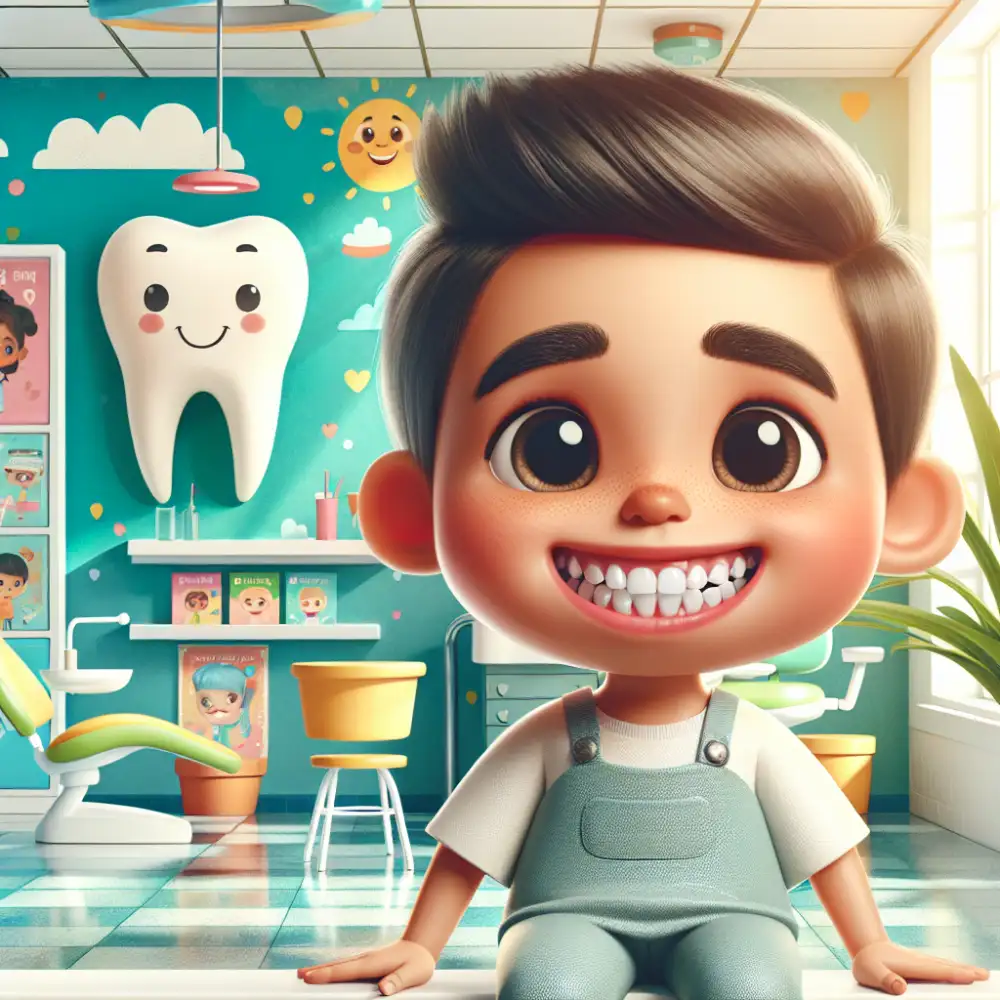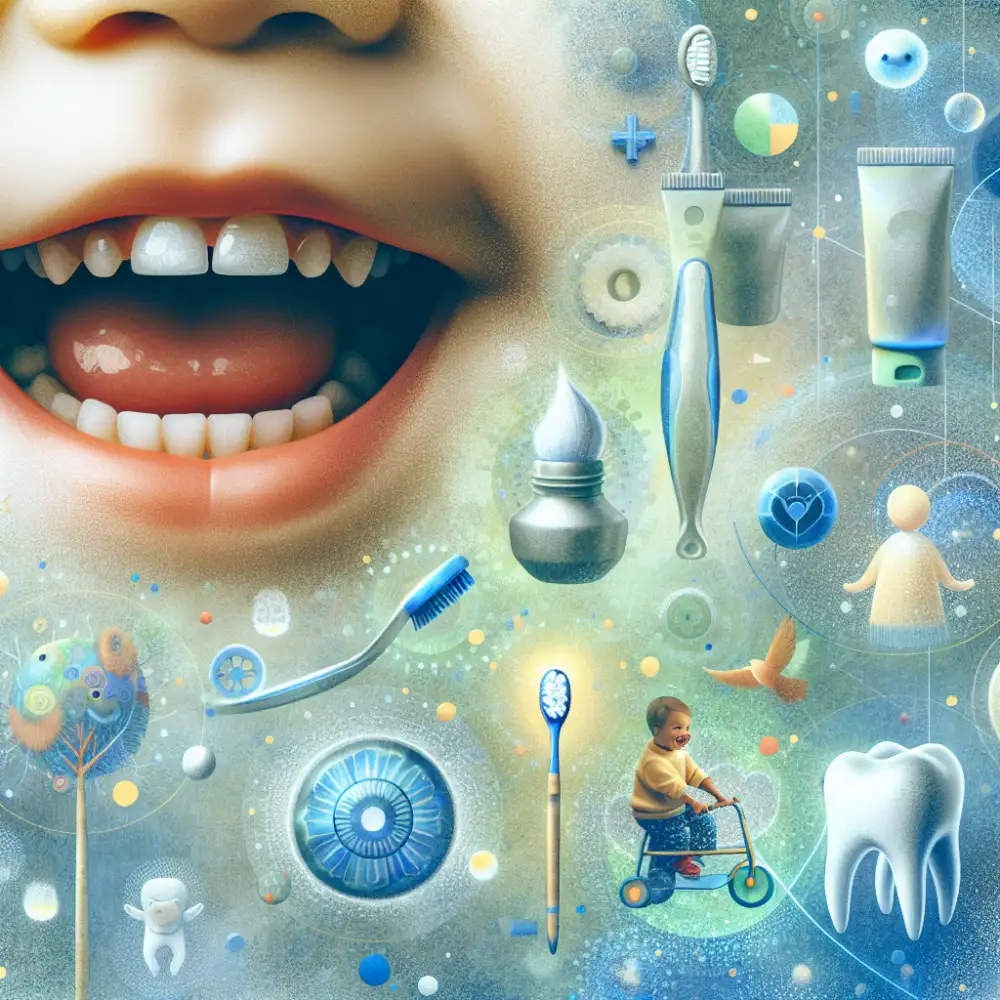Discover the Importance of Toothless Smiles: A Guide to Dental Health and Child Development

- Importance of dental health in children
- The natural process of losing baby teeth
- Common concerns related to toothless smiles
- Tips for maintaining good oral hygiene during the toothless stage
- The role of nutrition in promoting healthy tooth development
- Dental care options for children with toothless smiles
- The impact of tooth loss on speech development
- Emotional and social aspects of toothless smiles
Good dental health is crucial for children as it sets the foundation for their overall well-being. Poor oral hygiene can lead to various dental issues such as cavities, gum disease, and even tooth loss. Additionally, research has shown that dental problems in children can affect their nutrition, speech development, and self-esteem.
Maintaining good dental health from an early age helps prevent these problems. Regular brushing and flossing remove plaque and bacteria, reducing the risk of cavities. It is recommended that children visit a dentist by their first birthday or within six months after their first tooth erupts.
Early dental visits allow dentists to monitor the child's oral health and provide guidance on proper oral hygiene practices. They can also identify any potential issues early on and take preventive measures. By instilling good oral habits in children, parents can ensure their long-term dental health and overall well-being.
The natural process of losing baby teeth
The natural process of losing baby teeth, also known as primary teeth, is an important milestone in a child's dental development. Typically, children start losing their baby teeth around the age of 6 or 7, although this can vary from child to child. The process begins when the roots of the baby teeth start to dissolve, allowing the permanent teeth underneath to push through and take their place. This gradual loss of baby teeth continues until all 20 primary teeth have been replaced by permanent teeth. It is important for parents to understand that this process is normal and necessary for proper oral development in children.
Tips for maintaining good oral hygiene during the toothless stage
During the toothless stage, it is crucial to maintain good oral hygiene to ensure healthy gum and tooth development. Here are some tips to help parents in this process:
- Clean the gums: Even before teeth erupt, gently wipe your baby's gums with a clean, damp cloth after feeding. This helps remove bacteria and prevents infection.
- Introduce a soft-bristled brush: Once the first tooth appears, start using a soft-bristled brush specifically designed for infants. Brush twice a day using water or a fluoride-free toothpaste.
- Teach proper brushing techniques: As your child grows, teach them how to brush their teeth properly. Use gentle circular motions and ensure they reach all areas of their mouth.
- Encourage healthy habits: Limit sugary snacks and drinks as they can contribute to tooth decay. Instead, offer nutritious foods like fruits, vegetables, and dairy products that promote strong teeth.
- Schedule regular dental check-ups: Visit a pediatric dentist regularly for check-ups and professional cleaning. They can identify any potential issues early on and provide guidance on oral care specific to your child's needs.
By following these tips, you can establish good oral hygiene habits during the toothless stage, setting the foundation for optimal dental health as your child grows older.

The role of nutrition in promoting healthy tooth development
The role of nutrition in promoting healthy tooth development is crucial during the toothless stage. A balanced diet rich in essential nutrients such as calcium, phosphorus, and vitamin D is essential for the formation of strong teeth. Calcium helps in the development of tooth enamel, while phosphorus aids in strengthening the teeth and bones. Vitamin D plays a vital role in absorbing calcium from food sources. Including foods like milk, yogurt, cheese, leafy greens, nuts, and fish can provide these necessary nutrients for optimal tooth growth. Additionally, limiting sugary snacks and beverages can help prevent tooth decay and promote overall dental health.
A toothless grin, a right of passage for every child, a reminder that even the smallest among us are growing and changing every day.
Elias Davenport
The impact of tooth loss on speech development
The impact of tooth loss on speech development is significant. Baby teeth play a crucial role in the development of speech sounds. When a child loses their baby teeth, it can affect their ability to articulate certain sounds correctly. This can lead to speech difficulties and challenges in communication. It is important for parents and caregivers to monitor the progress of speech development during the toothless stage and seek professional help if necessary. Speech therapy may be recommended to assist children in overcoming any speech difficulties caused by tooth loss.
Emotional and social aspects of toothless smiles
Emotional and social aspects of toothless smiles play a significant role in a child's development. The absence of teeth can affect their self-esteem and confidence, especially when interacting with peers. However, it is essential to emphasize the natural process of losing baby teeth and reassure children that this is a normal part of growing up. Encouraging positive reinforcement and celebrating the uniqueness of toothless smiles can boost their self-image and promote social acceptance. Parents, teachers, and caregivers should create an inclusive environment that fosters understanding and appreciation for all stages of dental development. By embracing the beauty of toothless smiles, we can help children navigate this transitional period with confidence and joy.

In conclusion, toothless smiles play a significant role in a child's development and should be embraced. It is a natural and temporary stage that signifies the growth of permanent teeth. While dental health is important, it is equally crucial to appreciate the beauty and innocence of these smiles. Parents can support their child's oral hygiene by ensuring proper nutrition and regular dental check-ups. Embracing toothless smiles not only promotes healthy tooth development but also encourages emotional and social confidence in children. Let us cherish this adorable phase and celebrate the journey of our little ones' dental health and overall growth.
Published: 07. 02. 2024
Category: Health



